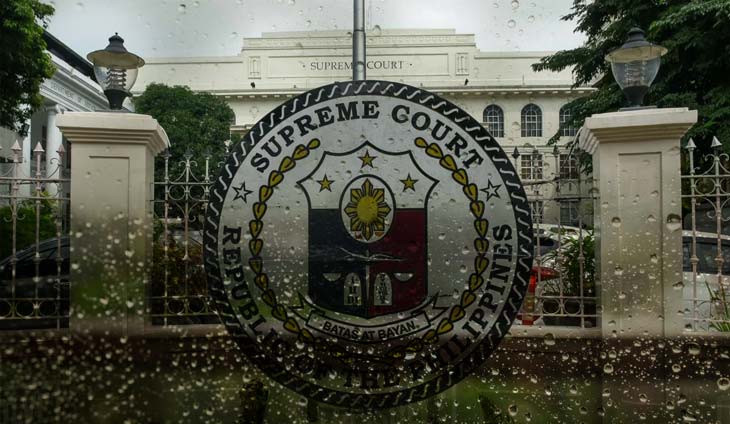MANILA. Philippines– The Supreme Court (SC) has dismissed a court sheriff who was found guilty of accepting money in connection with a drug case.
In a per curiam decision, the SC En Banc dismissed Dwight Aldwin S. Geronimo (Geronimo), Sheriff IV of Branch 121, Regional Trial Court, Imus City, Cavite, revoking all his retirement benefits and permanently banning him from government employment.
The case stemmed from a complaint by Antolyn Dones Gonzales (Gonzales), who said Geronimo asked her for PHP 200,000 in exchange for helping speed up the drug case of her friend, Monib Saadoning Amatonding (Monib). Geronimo claimed the judge handling the case was his aunt and promised that Monib would be granted bail.
Gonzales paid Geronimo PHP 115,000 initially, with the remaining amount to be paid after Monib’s case was settled. They kept in touch via Facebook Messenger, where Geronimo repeatedly promised results and even visited Gonzales at her home. But when Monib’s bail was denied, Geronimo disappeared – blocking Gonzales on Facebook and changing his phone number.
In his defense, Geronimo gave different stories. First, he said the money was just a personal loan. Later, he claimed he was pretending to go along with Gonzales to expose alleged corruption in the court.
The Judicial Integrity Board (JIB) found Geronimo guilty of gross misconduct and recommended his dismissal. The SC agreed.
Under Section 1, Canon I of the Code of Conduct for Court Personnel (Code), court personnel should not use their position for personal gain. Section 2 of the same Canon forbids them from accepting gifts that could influence their official actions.
The SC stressed that court employees should never take money from litigants for any reason. Such actions are considered gross misconduct, defined as unlawful behavior or gross negligence by a public officer coupled with elements of corruption, or willful intent to violate the law or disregard established rules. Corruption, as an element of gross misconduct, involves an official unlawfully or wrongly using their position to obtain personal benefits.
Geronimo admitted to receiving money from Gonzales as a personal loan. The SC ruled that this still violated Section 2 of the Code because accepting money from someone with a pending case is prohibited, making his explanation irrelevant.
The Facebook Messenger messages, which Geronimo did not deny sending, support the claim that the money he received was related to a pending case.
Due to the seriousness of Geronimo’s actions, as well as a previous record of misconduct, the SC imposed the ultimate penalty of dismissal.
The SC also reminded all court employees to be role models of responsibility, competence, and efficiency. They are expected to do their jobs with the highest level of care as officers of the court and agents of the law. (Courtesy of the SC Office of the Spokesperson)
This press release is prepared for members of the media and the general public by the SC Office of the Spokesperson as a simplified summary of the SC’s Decision. The full text of the Decision in JIB FPI No. 21-071-P (Gonzales v. Geronimo), July 9, 2025, shall be uploaded to the SC website once available.
Originally published by the Supreme Court Public Information Office.

